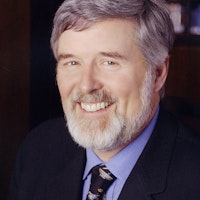
Homesick and Happy
We work closely with Dr. Thompson to advance our understanding of the developmental role that camp plays. He believes that many skills that predict for success are best learned at summer camp.
Dr. Thompson champions summer camp as a unique place where children are stretched in confidence and independence. They hone interpersonal skills while living in a cabin full of peers without the distractions of technology.
We partnered with Dr. Thompson to put on a three day speaking tour in Austin, Dallas, and Houston, sharing his argument that some of the greatest maturation of a child’s life can occur away from home at summer camp.
Steve Sir, The Camp Geek
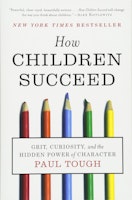
How Children Succeed
This book focuses on a simple question: “what are the skills that children need to be successful, particularly in college?”
Tough summarizes the best current research in Education, Cognitive Development, Developmental Psychology and Youth Development. The conclusion of the research was unexpected and remarkable and is as follows:
We, as a society, have placed too much emphasis on the “cognitive theory” that holds that success in college is a function of IQ, academic skills and SAT scores. These measurements have some relationship to collegiate success, but not as much as certain “non-cognitive skills”, including grit, self-control, optimism and gratitude. Tough also calls these “character skills”.
In short, a student with self-control, grit and optimism is more likely to graduate from college than a student with high IQ or top SAT scores.
The research is essentially indisputable and leads us to a tricky question: if these are the most important skills, then how do we foster them in our children?
The good news is that these “character skills” are, in fact, skills and not inherited attributes. Children can develop grit, learn self-control and cultivate optimism.
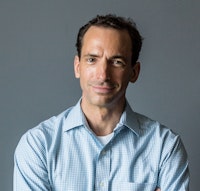
Our traditional education system, however, is not designed to produce these outcomes. While great teachers can help with some of these skills, teachers are limited. They only get a few hours a week with students. More importantly, they are evaluated on how they teach specific knowledge (math and reading) and not on character. Typically, we manage what we measure. As a result, schools spend most of their time and effort on academic skills and not on character skills.
Camp Champions, on the other hand, strives to focus on character skills 16 hours a day. In fact, it is our passion to hire extraordinary role models and have them model resilience, love, optimism, gratitude, self-control and other valuable character skills. We focus on the “4 Rs” of Responsibility, Respect, Reaching Out, and Reasonable Risks.
I have had several conversations with Paul Tough about camp and character. He has led me to some of the researchers that he encountered doing his research. We are talking with them about ways to make Camp Champions the most effective camp in the nation in teaching and growing character in our campers!
Steve Sir, The Camp Geek
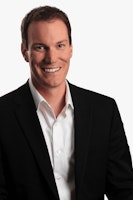
The Happiness Advantage
A group of psychologists led by Martin Seligman (including Shawn Achor and Mihaly Csikszentmihaly) have spent the past several decades studying “Positive Psychology”. In short, Positive Psychology studies how “typical” individuals can become highly effective, content, and successful individuals.
According to their research, perhaps the most important aspect of both happiness and success is “optimism”.
By optimism, they do not mean “the glass is half full”. Instead, an optimist is someone who believes 1) that problems are temporary and 2) effort can reduce or eliminate problems. In contrast, a pessimist believes that problems are permanent and nothing he or she can do will minimize them.
As you can see, the difference here is huge. An optimist can overcome challenges and difficulty while a pessimist become a victim of them.
While everyone is born with a certain level of optimism or pessimism, the Positive Psychology research has revealed something incredibly exciting: individuals can engage in certain activities to increase their “baseline” of optimism. These activities include:
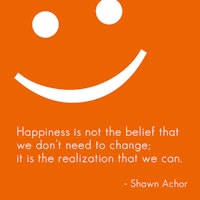
- Writing about or discussing positive experiences everyday
- Doing acts of kindness daily
- Exercise
- Meditation
- Expressing Gratitude
People who engage in these and other similar exercises develop increased optimism that remains in place even if they stop or reduce the exercises.
Since we are always looking for ways to help our campers grow at Camp Champions, this research has been quite inspirational to us.
We have introduced “evening rituals” that help the campers ritualize many of these exercises. Of course, the campers get regular exercise and discover activities that they enjoy enough to continue after camp that will keep them active. We have even worked directly with Shawn Achor to study optimism at camp and develop practices to cultivate optimism.
Steve Sir, The Camp Geek
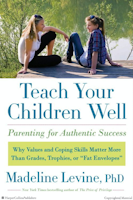
Teach Your Children Well
I had the chance to speak with Dr. Madeline Levine, author of “The Price of Privilege” and “Teach Your Children Well”. She was a keynote speaker at the American Camp Association’s National Conference.
Her books do an exceptional job describing the challenges of successful people raising children. She has excellent advice on academic pressures, family values, the importance of sleep and (ultimately) the goals of parenting.
She also describes many of the failings of our education system and various other sources of stress that affect our children.
During her talk, she detailed the summer camp experiences of her three (very different) children. Each of them had grown meaningfully during their time at camp. What struck me was the fact that each of them had been impacted in very different ways. For her over-achiever, camp was a place to set and accomplish goals (which led to increased confidence) and to experience occasional failures (which led to resilience). Her introverted and “unusual” child found friends and acceptance. The third child had struggled to understand his place in the world. At camp, he found significance impacting other people, particularly younger campers.
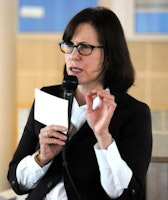
In short, camp scratched each of their itches.
After her talk, she and I exchanged emails. She has said that she “should use camp, in its best sense, as an example for parents of an environment that moves kids forward.”
In “Teach Your Children Well,” she describes 7 attributes that predict for success, contentment and fulfillment. They are as follows:
- Enthusiasm
- Creativity
- Resourcefulness
- Work ethic
- Self-control
- Self-esteem
- Self-efficacy
Compare these attributes to the skills discussed in Paul Tough’s book “How Children Succeed” and described by the Partnership for 21st Century Skills. You will see a substantial overlap in skills/attributes.
In short, these are the outcomes that we focus on at Camp Champions. We have intentional ways to foster self-esteem, teach resourcefulness, harness enthusiasm and develop self-control.
We are also actively studying the research so that we will know the best ways to provide these skills to our campers. Of course, we start with excellent role models and a loving environment, but we are always looking for ways to be even more effective with campers.
Steve Sir, The Camp Geek
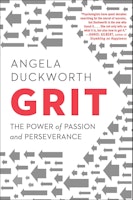
Grit
In this instant New York Times bestseller, pioneering psychologist Angela Duckworth shows anyone striving to succeed—be it parents, students, educators, athletes, or business people—that the secret to outstanding achievement is not talent but a special blend of passion and persistence she calls “grit.”
Drawing on her own powerful story as the daughter of a scientist who frequently noted her lack of “genius,” Duckworth, now a celebrated researcher and professor, describes her early eye-opening stints in teaching, business consulting, and neuroscience, which led to the hypothesis that what really drives success is not “genius” but a unique combination of passion and long-term perseverance.
In Grit, she takes readers into the field to visit cadets struggling through their first days at West Point, teachers working in some of the toughest schools, and young finalists in the National Spelling Bee. She also mines fascinating insights from history and shows what can be gleaned from modern experiments in peak performance. Finally, she shares what she’s learned from interviewing dozens of high achievers—from JP Morgan CEO Jamie Dimon to New Yorker cartoon editor Bob Mankoff to Seattle Seahawks Coach Pete Carroll.
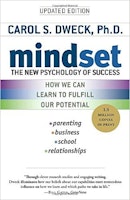
After decades of research, world-renowned Stanford University psychologist Carol S. Dweck, Ph.D., discovered a simple but groundbreaking idea: the power of mindset. In this brilliant book, she shows how success in school, work, sports, the arts, and almost every area of human endeavor can be dramatically influenced by how we think about our talents and abilities. People with a fixed mindset—those who believe that abilities are fixed—are less likely to flourish than those with agrowth mindset—those who believe that abilities can be developed. Mindset reveals how great parents, teachers, managers, and athletes can put this idea to use to foster outstanding accomplishment.
In this edition, Dweck offers new insights into her now famous and broadly embraced concept. She introduces a phenomenon she calls false growth mindset and guides people toward adopting a deeper, truer growth mindset. She also expands the mindset concept beyond the individual, applying it to the cultures of groups and organizations. With the right mindset, you can motivate those you lead, teach, and love—to transform their lives and your own.